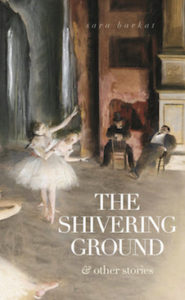< Return to Kahlil Gibran Poems
The Greater Sea
My soul and I went to the great sea to bathe. And when we reached the shore, we went about looking for a hidden and lonely place.
But as we walked, we saw a man sitting on a grey rock taking pinches of salt from a bag and throwing them into the sea.
“This is the pessimist,” said my soul, “Let us leave this place. We cannot bathe here.”
We walked on until we reached an inlet. There we saw, standing on a white rock, a man holding a bejewelled box, from which he took sugar and threw it into the sea.
“And this is the optimist,” said my soul, “And he too must not see our naked bodies.”
Further on we walked. And on a beach we saw a man picking up dead fish and tenderly putting them back into the water.
“And we cannot bathe before him,” said my soul. “He is the humane philanthropist.”
And we passed on.
Then we came where we saw a man tracing his shadow on the sand. Great waves came and erased it. But he went on tracing it again and again.
“He is the mystic,” said my soul, “Let us leave him.”
And we walked on, till in a quiet cover we saw a man scooping up the foam and putting it into an alabaster bowl.
“He is the idealist,” said my soul, “Surely he must not see our nudity.”
And on we walked. Suddenly we heard a voice crying, “This is the sea. This is the deep sea. This is the vast and mighty sea.” And when we reached the voice it was a man whose back was turned to the sea, and at his ear he held a shell, listening to its murmur.
And my soul said, “Let us pass on. He is the realist, who turns his back on the whole he cannot grasp, and busies himself with a fragment.”
So we passed on. And in a weedy place among the rocks was a man with his head buried in the sand. And I said to my soul, “We can bath here, for he cannot see us.”
“Nay,” said my soul, “For he is the most deadly of them all. He is the puritan.”
Then a great sadness came over the face of my soul, and into her voice.
“Let us go hence,” she said, “For there is no lonely, hidden place where we can bathe. I would not have this wind lift my golden hair, or bare my white bosom in this air, or let the light disclose my sacred nakedness.”
Then we left that sea to seek the Greater Sea.
—Kahlil Gibran
About Kahlil Gibran
Khalil Gibran (جبران خليل جبران) was a writer, visual artist, and poet with a prolific collection of work. He was born in 1883 in a village in the Mount Lebanon Mutasarrifate and in 1893 moved with his family to the United States where he enrolled in school in Boston, then went back home when he was fifteen to enroll in the Collège de la Sagesse. In 1902 he came back to Boston, and two years later his artwork was displayed for the first time. In 1905 he published his first book, and after that studied art in Paris for three years. Gibran wrote books in both Arabic and English, including poems, plays, fables, short stories, and political essays.
His cousin, Kahlil G. Gibran, a sculptor, described his work in this way. “Ignoring much of the traditional vocabulary and form of classical Arabic, he began to develop a style which reflected the ordinary language he had heard as a child in Besharri and to which he was still exposed in the South End [of Boston]. This use of the colloquial was more a product of his isolation than of a specific intent, but it appealed to thousands of Arab immigrants.” (Robin Waterfield, 1998) He was inspired by the King James Bible, the works of William Blake, whose drawings were in Gibran’s opinion “so far the profoundest things done in English.” (Joseph Ghougassian, 1973) Other inspirations included Francis Marrash (فرنسيس بن فتح الله بن نصر الله مرّاش), Walt Whitman, and Friedrich Nietzsche.

“Self Portrait and Muse” by Khalil Gibran
With visual art Gibran worked in oils, pencil, ink, watercolor, and gouache, and created more than seven hundred pieces of visual art. His work is featured in a number of museums, and his work The Prophet has been translated into more than 100 languages and has never been out of print, becoming popular in the American counterculture and New Age movement. The book was admired by Elvis Presley, John Lennon, Johnny Cash, David Bowie, Gilad Hochman (גילעד הוכמן) and Dana Al Fardan. Gibran has museums, memorials, schools, a garden, and a crater on Mercury named after him.
I hope you enjoyed The Greater Sea by Kahlil Gibran! If you liked The Greater Sea by Kahlil Gibran, you might enjoy more poems by him below.
< Return to Khalil Gibran Poems
“Stunning…from start to finish. Barkat is a fierce new voice.”

